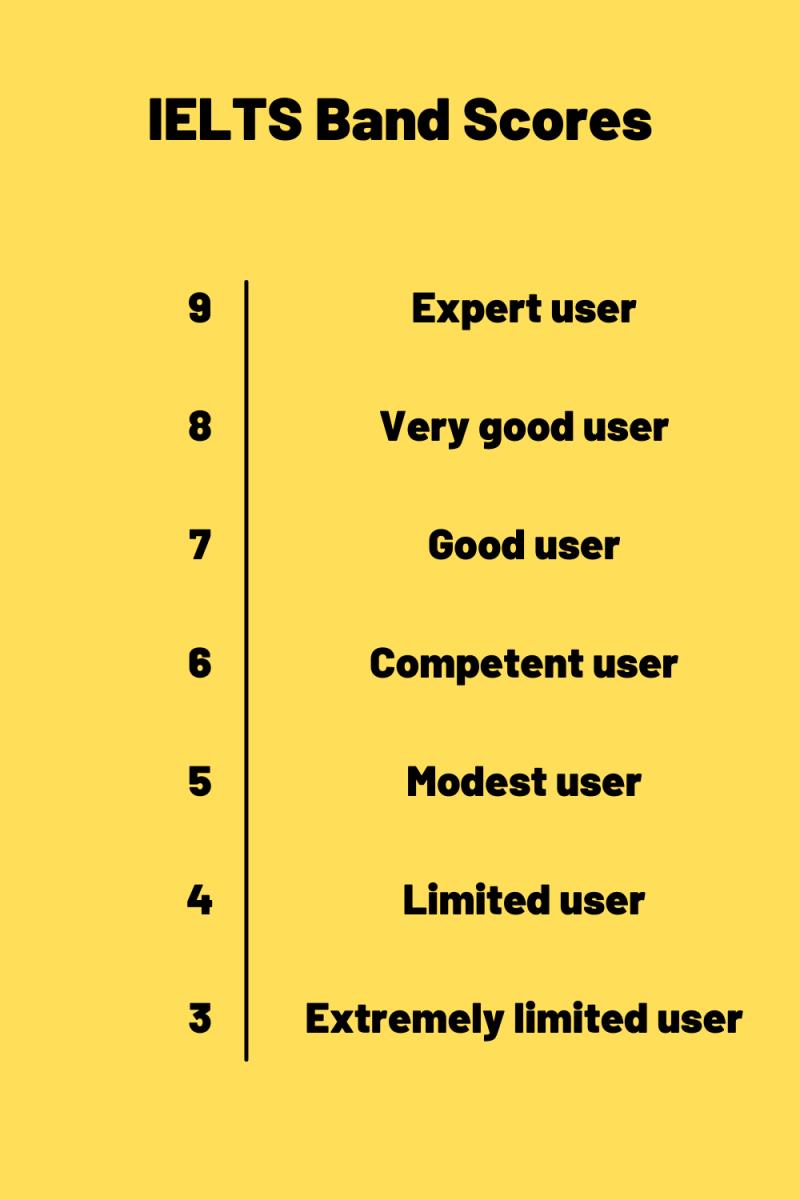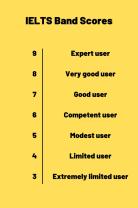How to score high in IELTS speaking?
Scoring high in the IELTS Speaking test requires a combination of language proficiency, communication skills, and strategic approaches to the test format. Here are some tips to help you maximize your performance and achieve a high score in the IELTS Speaking test:
Understand the Test Format:
- Familiarize yourself with the structure of the IELTS Speaking test. It consists of three parts: an introduction and interview, a short speech, and a discussion.
Practice Regularly:
- Practice speaking English regularly, especially on topics related to everyday life, education, work, and global issues. Engage in conversations with native speakers if possible.
Improve Pronunciation and Fluency:
- Work on your pronunciation and fluency. Practice speaking clearly and at a natural pace. Listen to native speakers, mimic their pronunciation, and pay attention to intonation.
Expand Your Vocabulary:
- Enhance your vocabulary by reading a variety of materials, including newspapers, magazines, and academic texts. Use new words in your daily conversations to reinforce your learning.
Use a Range of Grammar Structures:
- Demonstrate your ability to use a variety of grammatical structures. Avoid sticking to basic sentence structures; instead, aim for complexity and accuracy in your language use.
Focus on Cohesion and Coherence:
- Ensure that your responses are well-organized and coherent. Use linking words and phrases to connect ideas and create a smooth flow in your speech.
Answer the Question Fully:
- When responding to questions, make sure to address all aspects of the question. Provide detailed and relevant answers to showcase your ability to communicate effectively.
Practice with Sample Questions:
- Familiarize yourself with the types of questions asked in the IELTS Speaking test. Practice with sample questions to get a sense of the timing and structure of your responses.
Record Yourself:
- Record your responses to practice questions and listen to them critically. Identify areas where you can improve pronunciation, fluency, and overall coherence.
Take Advantage of Pauses:
- Don't be afraid of pauses. Taking a moment to gather your thoughts before responding can lead to more thoughtful and coherent answers.
Stay Calm and Confident:
- Maintain composure and confidence during the test. Nervousness can affect your performance, so practice relaxation techniques, such as deep breathing, to manage stress.
Ask for Clarification if Needed:
- If you don't fully understand a question, don't hesitate to ask for clarification. It's better to seek clarification than to provide an irrelevant response.
Engage in Mock Interviews:
- Practice mock interviews with a teacher, language exchange partner, or tutor. This simulates the test environment and provides valuable feedback.
Be Mindful of Time:
- Practice managing your time effectively during each section of the Speaking test. Use the allotted time for each response wisely.
Seek Feedback:
- If possible, seek feedback from a language instructor or native speaker. Constructive feedback can help you identify areas for improvement.
Remember that the IELTS Speaking test assesses your ability to communicate effectively in English. Practice and preparation are key components of success, so dedicate time to honing your skills and building confidence in your speaking abilities.
How to excel in the IELTS speaking section?
Excelling in the IELTS speaking section requires a combination of preparation, practice, and effective strategies. Here are some key steps to consider:
Familiarize yourself with the format and assessment criteria: Understand the structure of the IELTS speaking test and the specific criteria used to evaluate your performance.
Practice speaking English regularly: Immerse yourself in the English language by conversing with native speakers, watching English-language movies and TV shows, and listening to English podcasts and radio shows.
Expand your vocabulary and grammar: Enhance your vocabulary by learning new words and idioms, and improve your grammar by practicing sentence structures and verb tenses.
Focus on fluency and coherence: Aim to express your ideas smoothly and coherently, avoiding hesitations and grammatical errors.
Demonstrate active listening skills: Pay close attention to the examiner's questions and respond directly to what they ask, providing relevant and detailed answers.
Exhibit a confident and engaging attitude: Project a positive and enthusiastic demeanor, making eye contact with the examiner and using appropriate body language.
What are effective strategies for improving IELTS speaking scores?
Here are some effective strategies for improving your IELTS speaking scores:
Practice mock interviews: Participate in mock IELTS speaking tests to gain experience with the format and receive feedback from experienced examiners or tutors.
Record yourself speaking: Record yourself speaking English and listen back to identify areas for improvement, such as pronunciation, intonation, and clarity.
Focus on specific vocabulary and grammar topics: Identify areas of your vocabulary and grammar that need attention, and focus on practicing and mastering those topics.
Use a variety of sentence structures: Avoid repetitive sentence patterns and incorporate a range of sentence structures to enhance your fluency and expression.
Expand your range of idioms and expressions: Learn and use natural idioms and expressions to add depth and nuance to your speech.
Practice paraphrasing and rephrasing: Practice rephrasing questions and ideas to demonstrate your ability to express yourself in different ways.
Are there practice resources specifically tailored for IELTS speaking preparation?
Yes, there are numerous practice resources specifically tailored for IELTS speaking preparation. These resources include:
IELTS Speaking Test Preparation Books: These books provide comprehensive guidance on the IELTS speaking test, including practice questions, tips, and strategies.
IELTS Speaking Practice Websites: Several websites offer online practice tests, interactive exercises, and sample answers to help you prepare for the IELTS speaking test.
IELTS Speaking Mobile Apps: There are various mobile apps designed for IELTS speaking preparation, allowing you to practice on your smartphone or tablet.
IELTS Speaking Tutors: Experienced IELTS speaking tutors can provide personalized guidance, feedback, and practice opportunities to help you improve your speaking skills.
IELTS Speaking Clubs or Groups: Joining an IELTS speaking club or group can provide a supportive environment to practice speaking English with other IELTS candidates.


